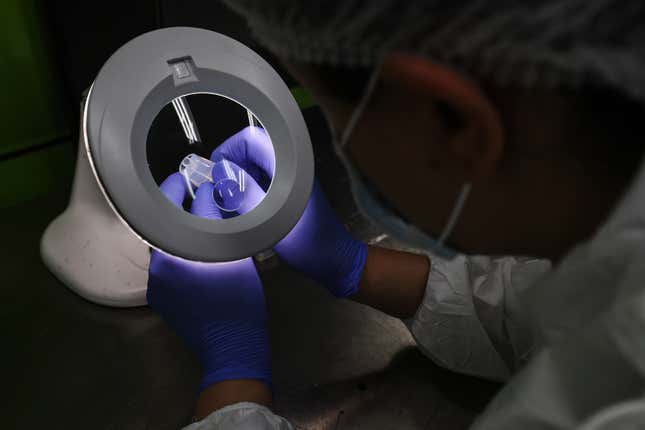‘Pro-Life’ Senators Block Bill to Protect IVF
Without Roe v. Wade, abortion bans with "life begins at conception" language leave IVF with an uncertain—possibly criminal—future.
Politics

In 2018, Sen. Tammy Duckworth (D-IL) became the first senator to give birth in office after using in vitro fertilization (IVF) and senators across party lines joined Duckworth in celebrating her child’s birth. Four years later, Duckworth’s Republican colleagues—namely Sen. Cindy Hyde-Smith (R-MO)—have blocked the Right To Build Families Act, a bill introduced by Duckworth and Sen. Patty Murray (D-WA) to create a federal right to use IVF and other fertility technologies, and prohibit any restrictions on individuals seeking fertility treatments.
On Tuesday, when Duckworth requested to pass the bill through unanimous consent, Hyde-Smith objected to it. “The same Republicans who claim to ‘defend family values’ just blocked my bill to protect the right to start a family through IVF,” Duckworth said in a tweet shortly after. The Illinois Democrat called right-wing threats to IVF “the ultimate, nightmarish blend of hypocrisy and misogyny.” In a statement shared with Jezebel, Murray called Hyde-Smith’s vote against their “commonsense” bill “outrageous,” and a result of Republicans’ “extreme stance on reproductive rights.”

In the absence of Roe, fertility doctors, their patients, and experts have expressed concern that abortion bans that accord legal personhood to embryos could lead to IVF being banned or criminalized—all while top Republicans including Georgia Gov. Brian Kemp (R) have been caught on hot mic advocating for restrictions on IVF. Last month, ProPublica released audio of Tennessee lawmakers debating the right time to start going after IVF and birth control post-Roe. In other words, without a law like Duckworth’s bill, there’s a credible legal threat to doctors and their patients.
-

-

-

-

-

-

-

-

-

-

-

-

-

-

-

-

-

-

-

-

-

-

-

-

-

-

-

-

-

-

-

-

-

-

-

-

-

-

-

-









































